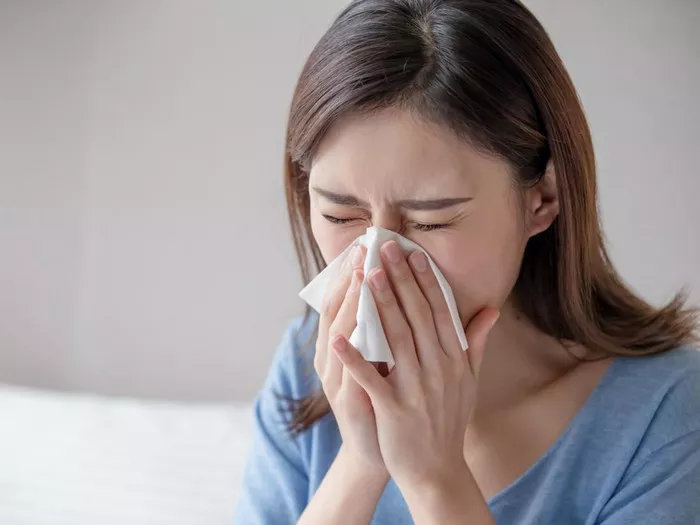A Comprehensive Guide to Allergic Rhinitis
Hay fever, also known as allergic rhinitis, is a common allergic condition that affects millions of individuals worldwide. This comprehensive guide aims to provide a thorough understanding of hay fever, including its causes, symptoms, and potential complications. Additionally, it will delve into effective strategies for managing and preventing hay fever, allowing individuals to regain control of their lives despite the challenges posed by this allergic condition.
The Causes of Hay Fever
Hay fever is primarily caused by the immune system’s hypersensitive response to certain environmental allergens. The main triggers include airborne substances such as pollen from trees, grasses, and weeds, as well as mold spores. Genetic predisposition plays a significant role in the development of hay fever, with individuals inheriting a heightened susceptibility to allergic reactions. Additionally, exposure to environmental factors, such as air pollution and tobacco smoke, may contribute to the onset and exacerbation of hay fever symptoms. The complex interplay between genetic and environmental elements underscores the multifactorial nature of hay fever etiology.
The Symptoms of Hay Fever
Hay fever manifests through a spectrum of symptoms primarily affecting the upper respiratory and ocular systems.
Nasal symptoms include recurrent sneezing, nasal congestion, rhinorrhea, and persistent itching of the nasal passages.
Ocular manifestations involve redness, itching, watery eyes, and sensitivity to light.
Systemic effects may extend beyond the respiratory and ocular domains, encompassing symptoms such as fatigue, irritability, and sleep disturbances.
The presentation of these symptoms is often characterized by their episodic nature, correlating with exposure to specific allergens and seasonal variations. Recognition of these diverse symptoms is essential for accurate diagnosis and effective management of hay fever.
Treatment Approaches
A. Pharmacological Interventions
1. Antihistamines:
Antihistamines are commonly prescribed to alleviate hay fever symptoms by blocking the action of histamine, a key mediator of allergic reactions. Various formulations, including oral tablets and nasal sprays, provide flexibility in addressing different symptom profiles.
2. Decongestants:
Decongestants, available in oral or nasal spray forms, reduce nasal congestion by constricting blood vessels. However, caution is warranted due to potential side effects, such as elevated blood pressure and rebound congestion with prolonged use.
3. Nasal Corticosteroids:
Nasal corticosteroids effectively reduce inflammation and congestion in the nasal passages, offering a long-term solution for hay fever management. These prescription medications play a crucial role in controlling symptoms and improving overall quality of life.
B. Immunotherapy: A Long-Term Solution
1. Allergy Shots:
Immunotherapy involves administering gradually increasing doses of specific allergens to desensitize the immune system. Allergy shots, administered over an extended period, can provide long-term relief by modifying the body’s response to allergens, addressing the root cause of hay fever.
2. Sublingual Immunotherapy (SLIT):
Sublingual immunotherapy is an alternative to traditional allergy shots, involving the placement of allergen extracts under the tongue. While not as commonly used as allergy shots, SLIT offers a convenient option for individuals seeking a non-invasive form of immunotherapy.
Lifestyle Modifications: Creating an Allergen-Free Environment
A. Environmental Control Measures
1. Allergen-Proofing the Home:
Implementing measures such as using allergen-proof mattress and pillow covers, regularly vacuuming carpets and upholstery, and minimizing indoor plants can significantly reduce indoor allergen exposure.
2. Air Purifiers:
High-efficiency particulate air (HEPA) filters in air purifiers help trap airborne allergens, providing relief to individuals with hay fever. Proper maintenance of these filters is crucial to ensure optimal air quality.
3. Pollen Avoidance Strategies:
Monitoring local pollen forecasts and adjusting outdoor activities accordingly, especially during peak pollen seasons, is vital. Wearing sunglasses and hats can also mitigate direct contact with airborne allergens.
Coping Strategies and Emotional Well-Being
A. Psychological Impact of Hay Fever
1. Awareness and Education:
Increasing awareness about the psychological impact of hay fever is crucial. Education empowers individuals to recognize and address the emotional toll, fostering a proactive approach to mental well-being.
2. Stress Management Techniques:
Incorporating stress management techniques, such as mindfulness, meditation, and deep-breathing exercises, can help individuals cope with the anxiety and frustration often associated with hay fever symptoms.
B. Coping Mechanisms and Support Systems
1. Support Groups:
Engaging with hay fever support groups or online communities provides a platform for individuals to share experiences, strategies, and emotional support. Connecting with others facing similar challenges can be instrumental in coping with the psychological aspects of hay fever.
2. Professional Counseling:
Seeking guidance from mental health professionals, such as psychologists or counselors, can assist individuals in developing coping strategies tailored to their unique emotional challenges. Professional support can be especially beneficial for those navigating the psychological impact of chronic hay fever.
In conclusion, hay fever is a manageable condition, and armed with knowledge and resources, individuals can proactively address its challenges. This comprehensive guide has explored the various facets of hay fever, from its causes and symptoms to diagnostic approaches, treatment options, and preventive strategies. By implementing the insights provided in this guide, individuals can regain control of their lives, minimizing the impact of hay fever on their overall well-being. As research continues to advance, the future holds promising developments that may further enhance our understanding and management of hay fever, providing hope for a more allergy-resilient tomorrow.
[inline_related_posts title=”You Might Be Interested In” title_align=”left” style=”list” number=”6″ align=”none” ids=”5729,5644,5641″ by=”categories” orderby=”rand” order=”DESC” hide_thumb=”no” thumb_right=”no” views=”no” date=”yes” grid_columns=”2″ post_type=”” tax=””]
































